Is Inositol Safe During Pregnancy? 8 Simple Facts for Expecting Moms | EIRMED
Is inositol safe during pregnancy? If you’re expecting or trying to get pregnant, especially with something like PCOS, this question might keep you up at night. At EIRMED, we help folks with fertility stuff for guys and gals, selling simple products to make things easier. Let’s chat about inositol like we’re grabbing coffee, it’s a natural helper that your body uses for balance, and it could make your pregnancy smoother. We’ll cover the basics, what studies say, and tips just for you.
What Exactly Is Inositol?
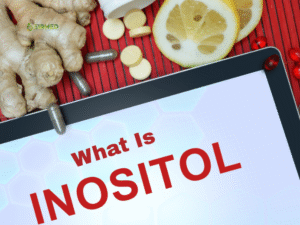 Picture inositol as a sweet helper in your body, kind of like a sugar your cells love. It’s not a real vitamin, but people call it vitamin B8 sometimes. Your body makes it, and you get more from foods like oranges, beans, nuts, and whole grains. But if you have PCOS, which messes with hormones and sugar handling, eating enough can be hard.
Picture inositol as a sweet helper in your body, kind of like a sugar your cells love. It’s not a real vitamin, but people call it vitamin B8 sometimes. Your body makes it, and you get more from foods like oranges, beans, nuts, and whole grains. But if you have PCOS, which messes with hormones and sugar handling, eating enough can be hard.
There are types like myo-inositol, the star one for pregnancy chats. It helps your body listen better to insulin, that thing that keeps blood sugar steady. Why care? For fertility, it can fix wonky periods and help eggs grow right. Many women at EIRMED shops say it calmed their worries before baby news came.
Fun fact: Back in the day, folks found inositol in muscle tissues that’s where “myo” comes from. Today, docs link it to better moods and less stress too. If you’re dealing with PCOS symptoms like extra hair or weight ups and downs, this could be a gentle friend.
Is Inositol Safe During Pregnancy?
 Straight up: Yes, is inositol safe during pregnancy for most women, based on what we know from studies. Groups like the Cleveland Clinic say doses up to 4 grams a day are okay short-term, with no big red flags for you or baby. One look-back at 46 moms taking it early on saw zero bad stuff compared to others who didn’t.
Straight up: Yes, is inositol safe during pregnancy for most women, based on what we know from studies. Groups like the Cleveland Clinic say doses up to 4 grams a day are okay short-term, with no big red flags for you or baby. One look-back at 46 moms taking it early on saw zero bad stuff compared to others who didn’t.
But here’s the real talk always ask your doctor first. Every body’s different, right? If you have high blood pressure or take other meds, they might tweak things. For PCOS gals, it’s extra helpful since that condition ups risks like high sugar or blood pressure spikes. Studies show it keeps things chill without harm.
Think of it like adding a safety net. No wild stories of tummy troubles or baby issues at normal amounts. WebMD backs this, saying up to 4,000 mg daily looks fine. Just don’t go rogue start with pro advice.
How Much Inositol Do You Need While Pregnant?
Let’s get to amounts. Most experts nod at 4 grams a day, split into two scoops, like morning and night. That’s from trials where it helped without overload. For myo-inositol pregnancy safety, this hits the sweet spot for cutting gestational diabetes odds by up to two-thirds.
Why split it? Your body soaks it up better that way, less chance of a queasy feel. If PCOS is your thing, pair it with folic acid many EIRMED packs do that for double power. But hold up: If you’re not sure, get blood checks first. Your doc might say less if you’re already good on sugars.
Supplements often come in 2-gram bags, easy to mix in water. Start before baby bump shows for best perks, but only green-lit by your team.
Inositol While Pregnant: A Simple Guide
Inositol while pregnant is a natural substance found in the body that helps with how cells work and how insulin is managed. You can also get it as a supplement, usually in the forms called myo-inositol or D-chiro-inositol. It’s been looked at for its possible benefits in areas like fertility, PCOS, and blood sugar control during pregnancy.
Why It’s Sometimes Used
-
Some research suggests myo-inositol may lower the risk of gestational diabetes by improving insulin response.
-
Women with PCOS sometimes continue using it during pregnancy to support hormone balance and ovulation.
-
Early studies are exploring its role in a baby’s brain development, though more proof is still needed.
Safety Points
-
Inositol is generally considered safe and only rarely causes mild stomach upset.
-
Studies in pregnancy usually use 2–4 grams per day, often along with folic acid.
-
It shouldn’t replace prenatal vitamins or anything else your doctor recommends.
Final Thought
Every pregnancy is different. Even though inositol looks promising, it’s important to check with your doctor or midwife before taking it. They can guide you based on your own health and pregnancy needs.
How Long Does Inositol Take to Work?
Many people wonder how long does inositol take to work, and the answer depends on the reason it’s being used. Inositol is not an instant solution, but with consistent daily use, most individuals begin to notice benefits within a few weeks to a few months, depending on their health goals and condition.
Key Points
- PCOS & Hormone Balance: Improvements often seen in 2–3 months.
- Fertility Support: Egg quality and ovulation may improve after 2–3 cycles.
- Gestational Diabetes/Insulin Sensitivity: Blood sugar benefits may appear within 4–12 weeks.
- Mood & Anxiety: Some people notice changes in 4–8 weeks.
- Consistency is Key: Daily use over time is necessary for best results.
Awesome Benefits of Inositol in Pregnancy
Inositol isn’t just safe it’s like a team player for your pregnancy. It helps your body handle sugars better, balances girl hormones, and guards against common bumps. Let’s break down the wins, one by one.
Cutting Down Gestational Diabetes Risk
Gestational diabetes is when sugar levels jump during pregnancy, making you watch eats and maybe take shots. Scary, huh? Good news: Inositol for gestational diabetes works wonders. Research says it drops risk by 67% in at-risk moms, like those with PCOS. How? It tells cells to grab sugar faster, so no big spikes.
Imagine less worry about midnight snacks or doc visits. One study pooled trials and saw fewer cases overall. Start early, and you might sail through trimesters easier.
Easing Pre-Eclampsia Worries
Pre-eclampsia means high blood pressure that can hurt you and baby if ignored. Inositol steps in by calming body stress and keeping vessels happy. It boosts insulin smarts, which ties to steadier pressure.
For women with extra weight or family history, this is gold. Trials hint at fewer scares, leading to chill births. Pair with walks and salty food cuts for extra oomph.
Guarding Against Neural Tube Problems
Baby’s brain and spine start forming super early like week three. Neural tube defects, like spina bifida, happen if things go off track. Enter inositol and folic acid: Together, they build strong starts. A big UK study found lower risks when both are in play.
If you’ve had issues before or PCOS ups your odds, this combo shines. It’s like giving baby a cozy foundation from day one.
Extra Help for PCOS Moms
PCOS can mean tougher pregnancies with more weight gain or mood dips. Inositol smooths that by fixing hormone wobbles and insulin glitches. Women report feeling more energy and less bloated. At EIRMED, our fertility kits with inositol help tons of couples.
It might even boost milk later or ease post-baby blues. Small wins add up to big joy.
Is Inositol Okay When Breastfeeding?
 Post-baby, nursing moms wonder about carry-overs. Short answer: Yep, is inositol safe during pregnancy and nursing too. It’s already in breast milk, feeding baby’s brain growth. Doses like 4 grams seem fine, maybe even upping supply.
Post-baby, nursing moms wonder about carry-overs. Short answer: Yep, is inositol safe during pregnancy and nursing too. It’s already in breast milk, feeding baby’s brain growth. Doses like 4 grams seem fine, maybe even upping supply.
One look at new moms saw better flow without downsides. But chat with your doc hormones shift fast after birth. If PCOS lingers, it keeps balance going.
Picking the Right Inositol Supplements
Shopping for supplements? Go for ones with myo-inositol plus helpers like alpha-lactalbumin for better soak-up, great if PCOS slows things. EIRMED has blends for women, like 40:1 myo to D-chiro ratios for fuller figures.
Check for clean labels no junk fillers. Third-party tested? Bonus. Powders mix easy in shakes; pills if you forget less. Read user stories: Many say it fit their routine perfect.
For guys, inositol aids sperm too EIRMED covers both sides.
Watch Out for Side Effects
Mostly, inositol plays nice. But at high doses, some feel tummy rumbles, headaches, or sleepy spells. Rare, and drops if you stick to 4 grams. Allergic? Stop if itchy.
It might amp diabetes meds, so watch sugars close. Multiples or other health bits? Doc first. Overall, side effects of inositol pregnant are low-key.
Smart Tips to Add Inositol to Your Day
Weave it in smooth: Morning dose with breakfast fruit for natural boost. Track moods in a journal see changes? Mix with prenatal vitamins, but space if queasy.
Before bed, pair with relax tea. For fertility tries, start pre-conceive. EIRMED tips: Eat inositol foods like cantaloupe too.
Chat with fertility spots like those in NJ or Nashville they echo safety for PCOS paths. Stay hydrated; it helps absorb.
What Real Moms and Docs Say
Heard from a mom: “Inositol made my PCOS pregnancy less bumpy no diabetes scare!” Docs at places like CCRM IVF nod to it for better eggs and outcomes.
Not magic, but a solid sidekick. Your story might match.
Thank You
Thanks a bunch for hanging out with this inositol guide. At EIRMED, we love cheering your fertility wins with real products and straight talk. Got thoughts? Drop us a line we’re rooting for your happy, healthy baby steps.
Frequently Ask Questions (FAQ )
What’s the top kind of inositol for pregnancy?
Myo-inositol it’s the go-to for hormone help and sugar control.
Does inositol boost fertility before baby?
Sure does, especially for PCOS by fixing cycles and eggs.
Is inositol safe during pregnancy without PCOS?
It can be, but perks shine more for sugar or hormone hiccups. Ask your doc.
How long to take inositol while expecting?
Whole way through often, but your health team sets the clock.
Mixes it clash with prenatal pills?
Nah, usually smooth. Double-check with a pill pro.
Guys get inositol perks for fertility?
Yep, it tunes sperm check EIRMED’s male line.
Overall Purpose
Wrapping up, figuring if inositol is safe during pregnancy arms you with easy tools for a chill ride. This body buddy cuts diabetes odds, guards baby’s start, and eases PCOS woes. With dose know-how and doc nods, you pick smart for you and little one. EIRMED dishes science-simple info to spark better fertility days, here’s to your glow-up!
Disclaimer
Hey, this is just friendly info, not doc orders. Is inositol safe during pregnancy? Yep for many, but your health pro calls shots since everyone’s unique. EIRMED gear supports, doesn’t fix. We pull from studies, but get personal advice always.

Eirmed is an informational platform dedicated to providing reliable, science-based insights on male and female fertility, reproductive health, and natural conception.


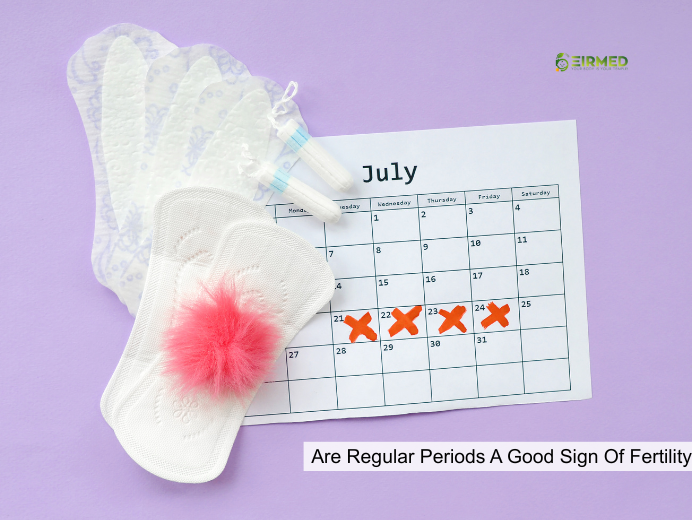
 Have you ever looked at your calendar and thought, “My periods come right on time every month, does that mean I’m ready to have a baby?” Lots of people wonder about this. Are regular periods a good sign of fertility? Well, it’s a common question, and the answer isn’t always straightforward. At EIRMED, we help folks with all kinds of fertility needs, offering supplements and treatments for both guys and gals. In this piece, we’ll chat about what your menstrual cycle really tells you about getting pregnant, how it all works, and some tips to boost your chances. We’ll keep it simple so anyone can follow along.
Have you ever looked at your calendar and thought, “My periods come right on time every month, does that mean I’m ready to have a baby?” Lots of people wonder about this. Are regular periods a good sign of fertility? Well, it’s a common question, and the answer isn’t always straightforward. At EIRMED, we help folks with all kinds of fertility needs, offering supplements and treatments for both guys and gals. In this piece, we’ll chat about what your menstrual cycle really tells you about getting pregnant, how it all works, and some tips to boost your chances. We’ll keep it simple so anyone can follow along.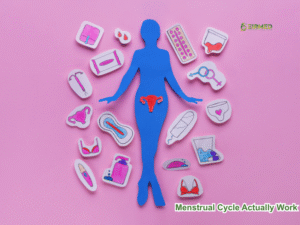
 Regular periods show up every 21 to 35 days, last about the same each time, and have a flow that’s not too much or too little. Mild cramps are normal, but nothing that knocks you out. This steady pattern suggests your hormones, like estrogen and progesterone, are doing their job right.
Regular periods show up every 21 to 35 days, last about the same each time, and have a flow that’s not too much or too little. Mild cramps are normal, but nothing that knocks you out. This steady pattern suggests your hormones, like estrogen and progesterone, are doing their job right. Are regular periods a good sign of fertility? If you’re thinking about starting a family or just curious about your body’s signals, this question might have crossed your mind. Regular periods often suggest that your hormones are in balance and your body is preparing for a possible pregnancy each month. But let’s take it step by step. At EIRMED, we focus on helping people like you with
Are regular periods a good sign of fertility? If you’re thinking about starting a family or just curious about your body’s signals, this question might have crossed your mind. Regular periods often suggest that your hormones are in balance and your body is preparing for a possible pregnancy each month. But let’s take it step by step. At EIRMED, we focus on helping people like you with  Hormones are the conductors of your cycle. Follicle-stimulating hormone (FSH) kickstarts egg growth, while luteinizing hormone (LH) triggers release. Estrogen builds the uterine lining, and progesterone maintains it for implantation. Imbalances can cause issues even with regular periods.
Hormones are the conductors of your cycle. Follicle-stimulating hormone (FSH) kickstarts egg growth, while luteinizing hormone (LH) triggers release. Estrogen builds the uterine lining, and progesterone maintains it for implantation. Imbalances can cause issues even with regular periods.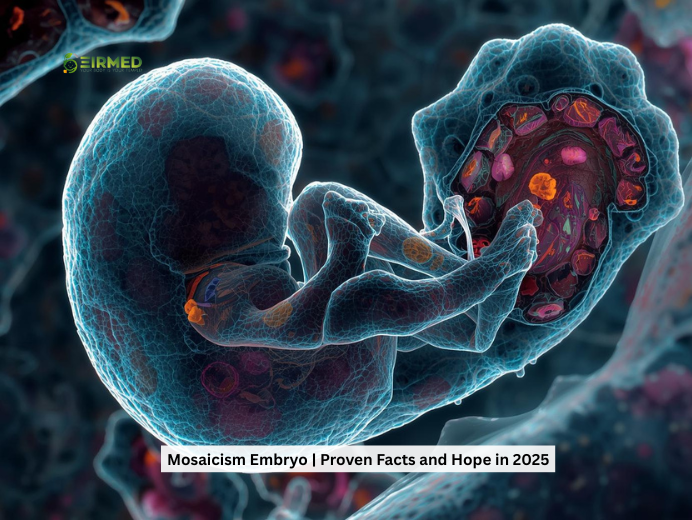
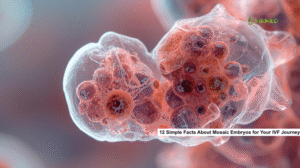 A Mosaicism Embryo is something you might hear about during IVF, and it can sound confusing at first. Don’t worry, we’re here to explain it clearly. At EIRMED, we want to help you understand your fertility options and feel hopeful. We also offer products like vitamins for women’s egg health or supplements for men’s sperm quality to support you. This guide breaks down everything about mosaic embryos in simple words, so you can talk to your doctor with confidence.
A Mosaicism Embryo is something you might hear about during IVF, and it can sound confusing at first. Don’t worry, we’re here to explain it clearly. At EIRMED, we want to help you understand your fertility options and feel hopeful. We also offer products like vitamins for women’s egg health or supplements for men’s sperm quality to support you. This guide breaks down everything about mosaic embryos in simple words, so you can talk to your doctor with confidence. So, what is a mosaic embryo? It’s an embryo with some normal cells and some cells that have the wrong number of chromosomes. Think of it like a puzzle where most pieces fit, but a few are different. Doctors find this during IVF with a test called PGT-A, where they check a tiny piece of the embryo on day 5 or 6.
So, what is a mosaic embryo? It’s an embryo with some normal cells and some cells that have the wrong number of chromosomes. Think of it like a puzzle where most pieces fit, but a few are different. Doctors find this during IVF with a test called PGT-A, where they check a tiny piece of the embryo on day 5 or 6.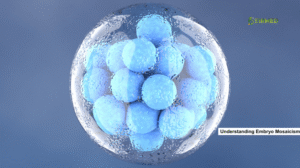 Embryo mosaicism means an embryo has two types of cells: some with the right number of chromosomes (46) and some with too many or too few. It’s like having a mix of regular and odd-shaped beads in a necklace. This happens early, when the embryo is just starting to divide after the egg and sperm join.
Embryo mosaicism means an embryo has two types of cells: some with the right number of chromosomes (46) and some with too many or too few. It’s like having a mix of regular and odd-shaped beads in a necklace. This happens early, when the embryo is just starting to divide after the egg and sperm join. Mosaic embryos are embryos with both normal and not-so-normal cells. They’re kind of in the middle—not perfect, but not all wrong either. The term “mosaic” means a mix, like tiles in a colorful pattern. In IVF, doctors spot this when they test embryos to see if they’re good for transfer.
Mosaic embryos are embryos with both normal and not-so-normal cells. They’re kind of in the middle—not perfect, but not all wrong either. The term “mosaic” means a mix, like tiles in a colorful pattern. In IVF, doctors spot this when they test embryos to see if they’re good for transfer.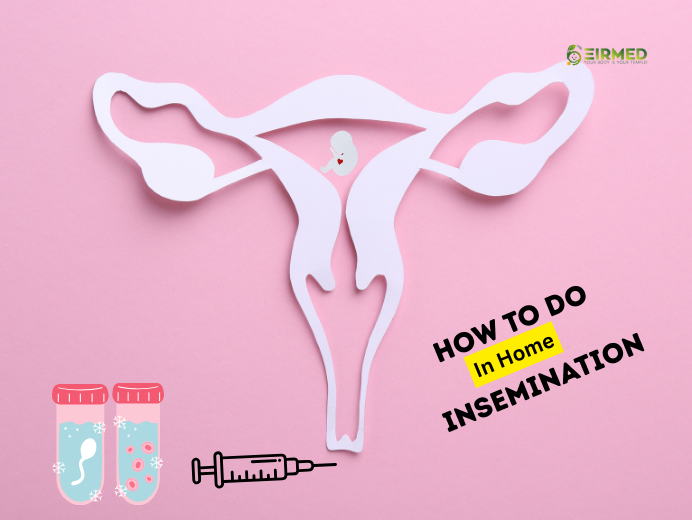
 How to do in home insemination is a question many people ask when they’re looking for a simple, private way to try for a baby. At EIRMED, we understand that starting or growing your family can feel exciting yet overwhelming, especially if you’re exploring options like this one. Our site helps with fertility medicines and products for both men and women, so you can find what fits your needs. This guide will walk you through everything in clear steps, making sure you have the facts to decide if it’s right for you.
How to do in home insemination is a question many people ask when they’re looking for a simple, private way to try for a baby. At EIRMED, we understand that starting or growing your family can feel exciting yet overwhelming, especially if you’re exploring options like this one. Our site helps with fertility medicines and products for both men and women, so you can find what fits your needs. This guide will walk you through everything in clear steps, making sure you have the facts to decide if it’s right for you. Home insemination means placing sperm into the vagina near the cervix using a simple tool like a syringe, without needing a doctor’s office. It’s a form of artificial insemination you can handle yourself. People often pick this when natural ways aren’t working or when using donor sperm.
Home insemination means placing sperm into the vagina near the cervix using a simple tool like a syringe, without needing a doctor’s office. It’s a form of artificial insemination you can handle yourself. People often pick this when natural ways aren’t working or when using donor sperm. Now, let’s get to the heart of how to do in home insemination. Follow these seven steps carefully for safety and better chances.
Now, let’s get to the heart of how to do in home insemination. Follow these seven steps carefully for safety and better chances.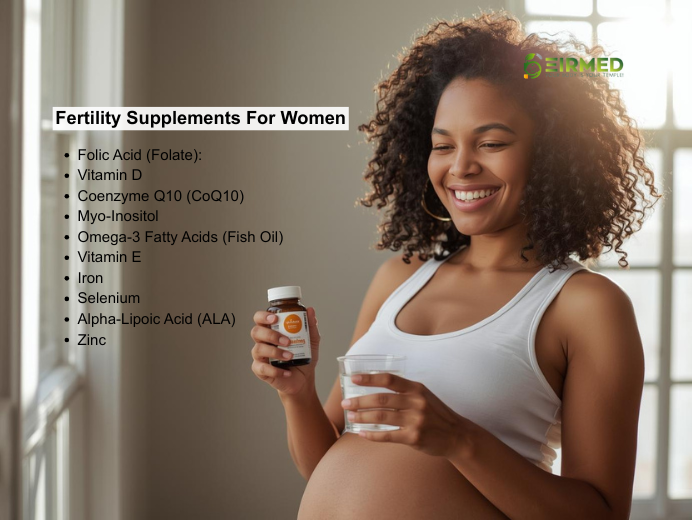

 How do fertility supplements for women work their magic? It starts with the basics: many contain antioxidants that protect cells from damage, which is key for healthy eggs. Others help regulate hormones, making your cycles more predictable. Imagine your body as a garden, these supplements provide the right soil and water to help things grow.
How do fertility supplements for women work their magic? It starts with the basics: many contain antioxidants that protect cells from damage, which is key for healthy eggs. Others help regulate hormones, making your cycles more predictable. Imagine your body as a garden, these supplements provide the right soil and water to help things grow.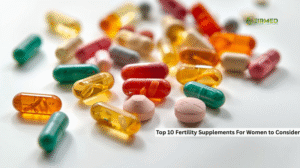 Let’s dive into some of the best fertility supplements for women based on current insights from fertility experts and clinics. We’ll cover what each one does, why it might help, and any tips for use. At EIRMED, we stock many of these in forms that are easy to take and backed by quality standards.
Let’s dive into some of the best fertility supplements for women based on current insights from fertility experts and clinics. We’ll cover what each one does, why it might help, and any tips for use. At EIRMED, we stock many of these in forms that are easy to take and backed by quality standards.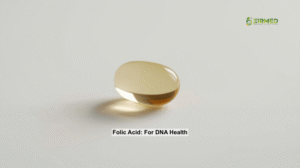
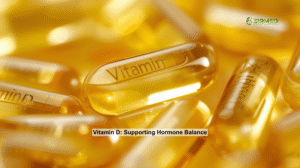
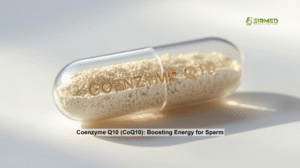



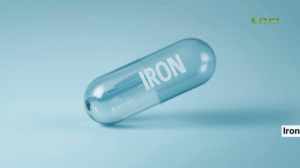

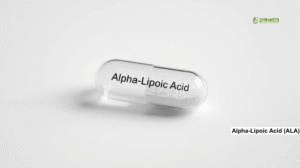
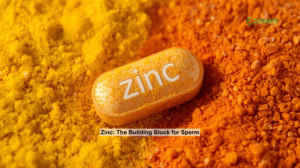

 Fertility treatments for women over 35 can feel like a fresh start when you’re ready to grow your family but facing some hurdles. Maybe you’ve heard the clock ticking louder after your mid-30s, or perhaps you’ve tried for a while without luck. It’s normal to have questions, and that’s why we’re here at EIRMED—to share clear, helpful info on options that work. We focus on fertility products and medicines that fit right into your daily life, whether for men or women.
Fertility treatments for women over 35 can feel like a fresh start when you’re ready to grow your family but facing some hurdles. Maybe you’ve heard the clock ticking louder after your mid-30s, or perhaps you’ve tried for a while without luck. It’s normal to have questions, and that’s why we’re here at EIRMED—to share clear, helpful info on options that work. We focus on fertility products and medicines that fit right into your daily life, whether for men or women. Let’s start with the basics. Around age 35, your egg supply starts to dip, and the quality can vary more. Doctors call this advanced maternal age, and it means a higher chance of taking longer to conceive or facing miscarriages. Stats show that by 35, about one in five women might need extra help, jumping to one in three by 40. Things like PCOS, thyroid issues, or even daily stress can add to it
Let’s start with the basics. Around age 35, your egg supply starts to dip, and the quality can vary more. Doctors call this advanced maternal age, and it means a higher chance of taking longer to conceive or facing miscarriages. Stats show that by 35, about one in five women might need extra help, jumping to one in three by 40. Things like PCOS, thyroid issues, or even daily stress can add to it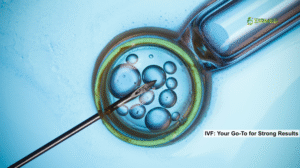



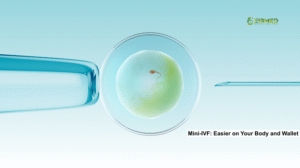



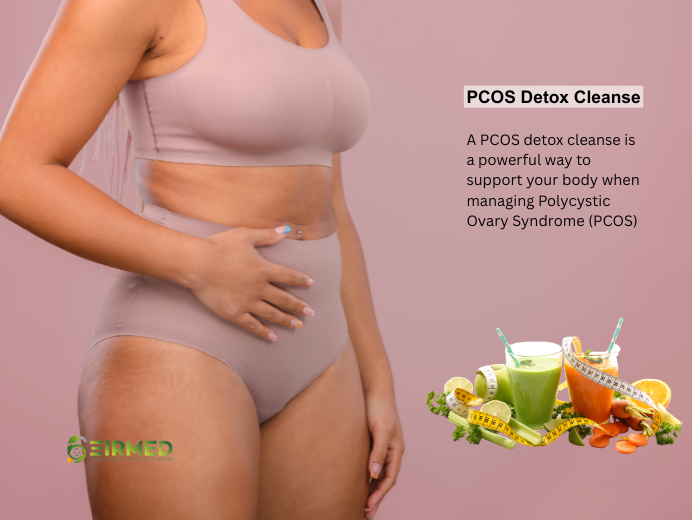
 What exactly is PCOS, and why does it feel so overwhelming? Polycystic Ovary Syndrome is a hormonal condition affecting many women, often causing irregular cycles, excess hair growth, acne, or difficulty conceiving. It’s like your body’s hormones are out of sync, with insulin resistance often playing a role. This means your cells struggle to use sugar efficiently, leading to higher androgen levels that disrupt
What exactly is PCOS, and why does it feel so overwhelming? Polycystic Ovary Syndrome is a hormonal condition affecting many women, often causing irregular cycles, excess hair growth, acne, or difficulty conceiving. It’s like your body’s hormones are out of sync, with insulin resistance often playing a role. This means your cells struggle to use sugar efficiently, leading to higher androgen levels that disrupt 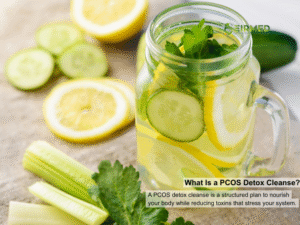 A PCOS detox cleanse is a structured plan to nourish your body while reducing toxins that stress your system. It’s not about extreme fasting or gimmicky pills but about eating wholesome foods, staying hydrated, and moving your body. The focus is on supporting your liver and gut, which are key to balancing hormones like estrogen and insulin.
A PCOS detox cleanse is a structured plan to nourish your body while reducing toxins that stress your system. It’s not about extreme fasting or gimmicky pills but about eating wholesome foods, staying hydrated, and moving your body. The focus is on supporting your liver and gut, which are key to balancing hormones like estrogen and insulin. Here’s a practical 7-day plan to guide you. Each day includes balanced meals and snacks, keeping calories around 1,500-2,000 (adjust as needed).
Here’s a practical 7-day plan to guide you. Each day includes balanced meals and snacks, keeping calories around 1,500-2,000 (adjust as needed).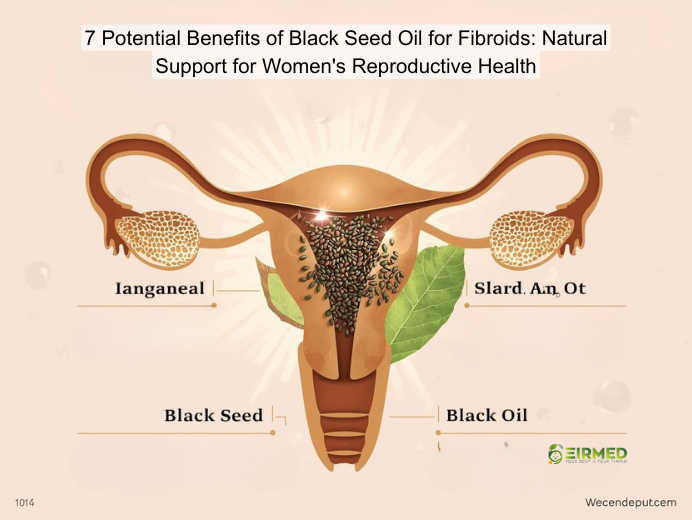
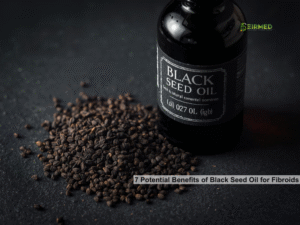 Black seed oil and fibroids is a topic many women explore when looking for natural ways to support their reproductive health. If you’ve been diagnosed with uterine fibroids or worry about how they might affect your fertility, you’re not alone. These non-cancerous growths in the uterus can cause discomfort, heavy periods, and challenges in conceiving. But what if a simple oil from ancient times, known as black seed oil for fibroids, could offer some relief? In this article, we’ll dive deep into the connection, sharing clear facts and tips to help you feel more in control. Many searches highlight black seed oil benefits for fibroids, making it a popular natural remedy.
Black seed oil and fibroids is a topic many women explore when looking for natural ways to support their reproductive health. If you’ve been diagnosed with uterine fibroids or worry about how they might affect your fertility, you’re not alone. These non-cancerous growths in the uterus can cause discomfort, heavy periods, and challenges in conceiving. But what if a simple oil from ancient times, known as black seed oil for fibroids, could offer some relief? In this article, we’ll dive deep into the connection, sharing clear facts and tips to help you feel more in control. Many searches highlight black seed oil benefits for fibroids, making it a popular natural remedy.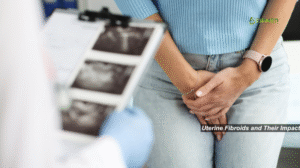 Uterine fibroids are common benign tumors that develop in the muscular wall of the uterus. They affect up to 80% of women by age 50, often during reproductive years. You might notice symptoms like pelvic pain, bloating, or irregular bleeding. For those trying to build a family, fibroids can interfere by blocking fallopian tubes or changing the uterine lining, making implantation harder.
Uterine fibroids are common benign tumors that develop in the muscular wall of the uterus. They affect up to 80% of women by age 50, often during reproductive years. You might notice symptoms like pelvic pain, bloating, or irregular bleeding. For those trying to build a family, fibroids can interfere by blocking fallopian tubes or changing the uterine lining, making implantation harder.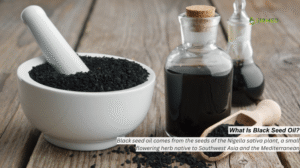
 Inflammation often worsens fibroid symptoms like cramps and bloating. Black seed oil’s anti-inflammatory properties can soothe these issues. A study on Nigella sativa found it lowers markers of inflammation, potentially easing pelvic discomfort. Many women report less pain after regular use, feeling more comfortable during daily activities.
Inflammation often worsens fibroid symptoms like cramps and bloating. Black seed oil’s anti-inflammatory properties can soothe these issues. A study on Nigella sativa found it lowers markers of inflammation, potentially easing pelvic discomfort. Many women report less pain after regular use, feeling more comfortable during daily activities. Fibroids are estrogen-sensitive, and black seed oil may help regulate hormones. Thymoquinone influences estrogen pathways, possibly reducing fibroid growth. In gynecological studies, Nigella sativa showed promise in conditions like PCOS, which shares hormonal traits with fibroids.
Fibroids are estrogen-sensitive, and black seed oil may help regulate hormones. Thymoquinone influences estrogen pathways, possibly reducing fibroid growth. In gynecological studies, Nigella sativa showed promise in conditions like PCOS, which shares hormonal traits with fibroids. Oxidative stress damages cells, including those in fibroids. Black seed oil is packed with antioxidants that protect against this. Research indicates it shields uterine tissues, potentially slowing fibroid development.
Oxidative stress damages cells, including those in fibroids. Black seed oil is packed with antioxidants that protect against this. Research indicates it shields uterine tissues, potentially slowing fibroid development. Some animal studies suggest black seed oil extracts reduce tumor size due to anti-proliferative effects. While human trials on fibroids are limited, the anti-tumor properties of thymoquinone offer hope. Women in traditional practices have used it for centuries to manage growths.
Some animal studies suggest black seed oil extracts reduce tumor size due to anti-proliferative effects. While human trials on fibroids are limited, the anti-tumor properties of thymoquinone offer hope. Women in traditional practices have used it for centuries to manage growths.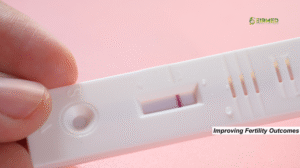 Fibroids can hinder conception, but black seed oil and fibroids relief might boost chances. By reducing inflammation and supporting blood flow to the uterus, it creates a better space for embryos. Studies on
Fibroids can hinder conception, but black seed oil and fibroids relief might boost chances. By reducing inflammation and supporting blood flow to the uterus, it creates a better space for embryos. Studies on  Heavy bleeding and clots from fibroids can be exhausting. Black seed oil may lighten flows by balancing prostaglandins, the chemicals behind cramps. Users often note shorter, less intense periods after consistent use.
Heavy bleeding and clots from fibroids can be exhausting. Black seed oil may lighten flows by balancing prostaglandins, the chemicals behind cramps. Users often note shorter, less intense periods after consistent use.
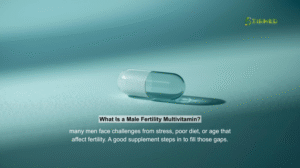 Think about your body as a machine that needs the right fuel to run well. A male fertility multivitamin is like premium fuel for your reproductive system. It combines vitamins, minerals, and other helpful compounds aimed at boosting sperm production and quality. Unlike regular multivitamins, these focus on nutrients that studies show can help with things like sperm count and movement. Fertility supplements for men often include these targeted ingredients to address common issues.
Think about your body as a machine that needs the right fuel to run well. A male fertility multivitamin is like premium fuel for your reproductive system. It combines vitamins, minerals, and other helpful compounds aimed at boosting sperm production and quality. Unlike regular multivitamins, these focus on nutrients that studies show can help with things like sperm count and movement. Fertility supplements for men often include these targeted ingredients to address common issues.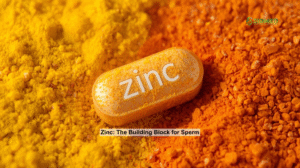 Zinc is often called the king of minerals for men’s health. It plays a big role in making testosterone, the hormone that drives sperm production. Low zinc levels can lead to fewer sperm or ones that don’t swim well. In a male fertility multivitamin, you’ll usually find about 15-30 mg of zinc per dose. Studies suggest that getting enough zinc can improve sperm quality over time.
Zinc is often called the king of minerals for men’s health. It plays a big role in making testosterone, the hormone that drives sperm production. Low zinc levels can lead to fewer sperm or ones that don’t swim well. In a male fertility multivitamin, you’ll usually find about 15-30 mg of zinc per dose. Studies suggest that getting enough zinc can improve sperm quality over time. Selenium acts like a shield for your sperm cells. It fights off harmful molecules called free radicals that can damage DNA in sperm. This mineral works well with vitamin E to keep things safe. A daily dose of around 55 mcg in a male fertility multivitamin can support better sperm movement.
Selenium acts like a shield for your sperm cells. It fights off harmful molecules called free radicals that can damage DNA in sperm. This mineral works well with vitamin E to keep things safe. A daily dose of around 55 mcg in a male fertility multivitamin can support better sperm movement.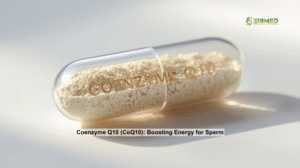 CoQ10 is an antioxidant that gives cells energy, including those in your reproductive system. It helps sperm swim faster and stronger. Many male fertility multivitamins include 100-200 mg of CoQ10 because studies link it to better sperm motility.
CoQ10 is an antioxidant that gives cells energy, including those in your reproductive system. It helps sperm swim faster and stronger. Many male fertility multivitamins include 100-200 mg of CoQ10 because studies link it to better sperm motility. Vitamin C isn’t just for colds; it’s great for fertility too. It reduces oxidative stress, which can harm sperm. A dose of 500-1000 mg in supplements can improve sperm count and quality. Think of it as a cleanup crew that keeps your system running smooth.
Vitamin C isn’t just for colds; it’s great for fertility too. It reduces oxidative stress, which can harm sperm. A dose of 500-1000 mg in supplements can improve sperm count and quality. Think of it as a cleanup crew that keeps your system running smooth.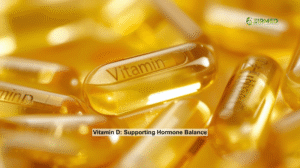 Vitamin D helps regulate hormones like testosterone. Low levels are common, especially if you spend a lot of time indoors. In male fertility multivitamins, 1000-2000 IU can make a difference in sperm health.
Vitamin D helps regulate hormones like testosterone. Low levels are common, especially if you spend a lot of time indoors. In male fertility multivitamins, 1000-2000 IU can make a difference in sperm health.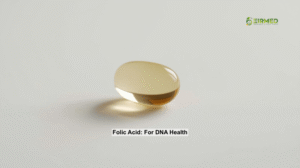 Folic acid, or vitamin B9, aids in making healthy DNA for sperm. Pairing it with zinc can boost sperm quality. Aim for 400-800 mcg daily.
Folic acid, or vitamin B9, aids in making healthy DNA for sperm. Pairing it with zinc can boost sperm quality. Aim for 400-800 mcg daily. L-Carnitine transports energy to sperm cells, helping them move better. Doses of 1000-2000 mg are common in these supplements
L-Carnitine transports energy to sperm cells, helping them move better. Doses of 1000-2000 mg are common in these supplements
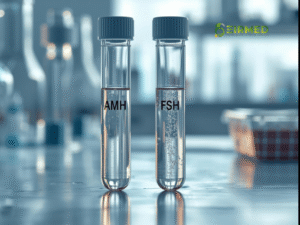 Fertility evaluation often begins with hormone tests that reveal important details about your reproductive potential. The AMH test, known fully as the anti-Mullerian hormone test, is a key tool in this process. Produced by granulosa cells in ovarian follicles, AMH reflects the number of remaining eggs, or ovarian reserve. Unlike other tests, the AMH blood test can be performed at any time during your menstrual cycle, making it highly convenient for busy schedules.
Fertility evaluation often begins with hormone tests that reveal important details about your reproductive potential. The AMH test, known fully as the anti-Mullerian hormone test, is a key tool in this process. Produced by granulosa cells in ovarian follicles, AMH reflects the number of remaining eggs, or ovarian reserve. Unlike other tests, the AMH blood test can be performed at any time during your menstrual cycle, making it highly convenient for busy schedules. AMH testing has become a standard in fertility clinics because it offers reliable insights into egg quantity without invasive procedures. The AMH anti-Mullerian hormone test measures hormone levels in the blood, helping predict how well your ovaries might respond to stimulation during treatments like in vitro fertilization (IVF).
AMH testing has become a standard in fertility clinics because it offers reliable insights into egg quantity without invasive procedures. The AMH anti-Mullerian hormone test measures hormone levels in the blood, helping predict how well your ovaries might respond to stimulation during treatments like in vitro fertilization (IVF). Engaging actively with your doctor ensures you understand your results fully. Here are 8 Questions to Ask Your Doctor About AMH and FSH Testing, structured to cover key aspects.
Engaging actively with your doctor ensures you understand your results fully. Here are 8 Questions to Ask Your Doctor About AMH and FSH Testing, structured to cover key aspects.